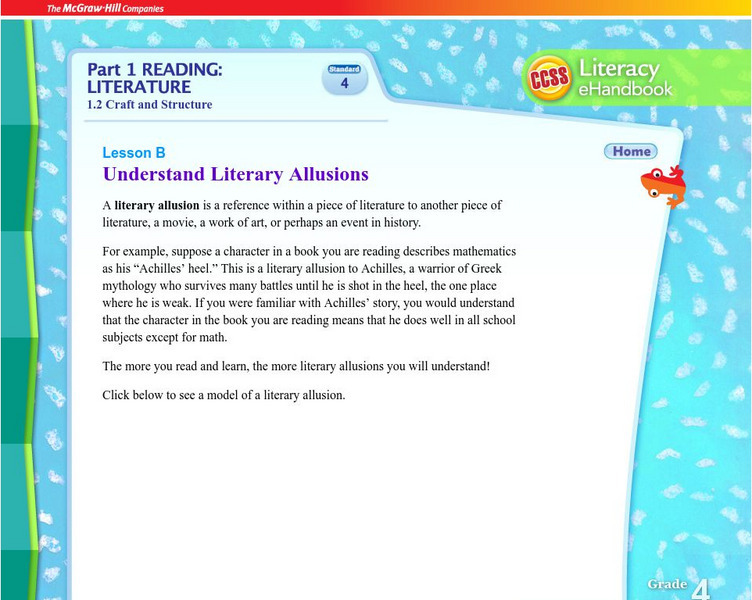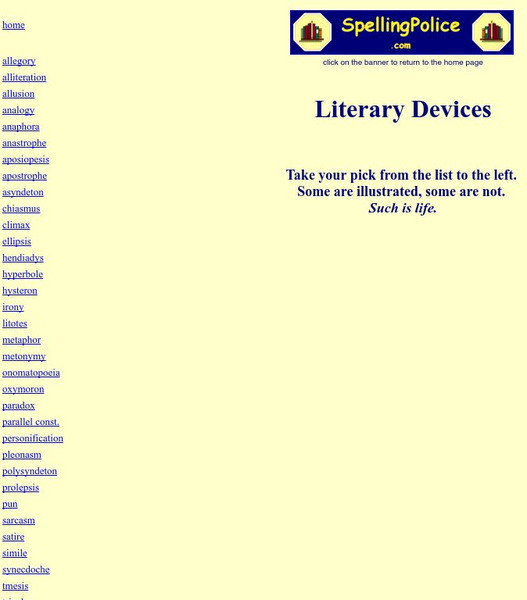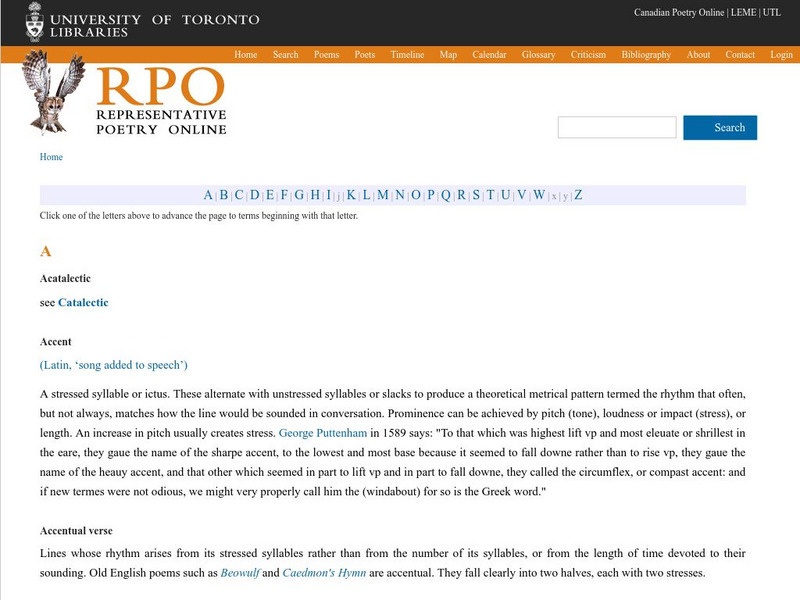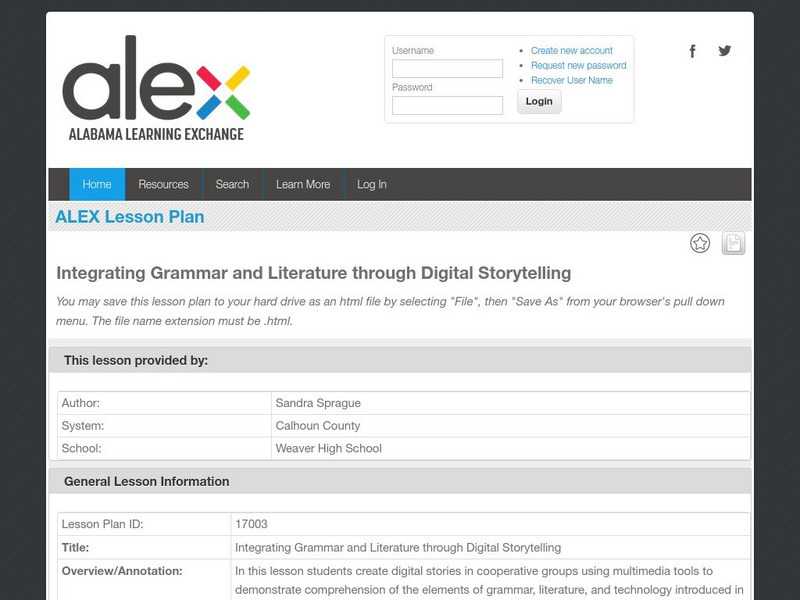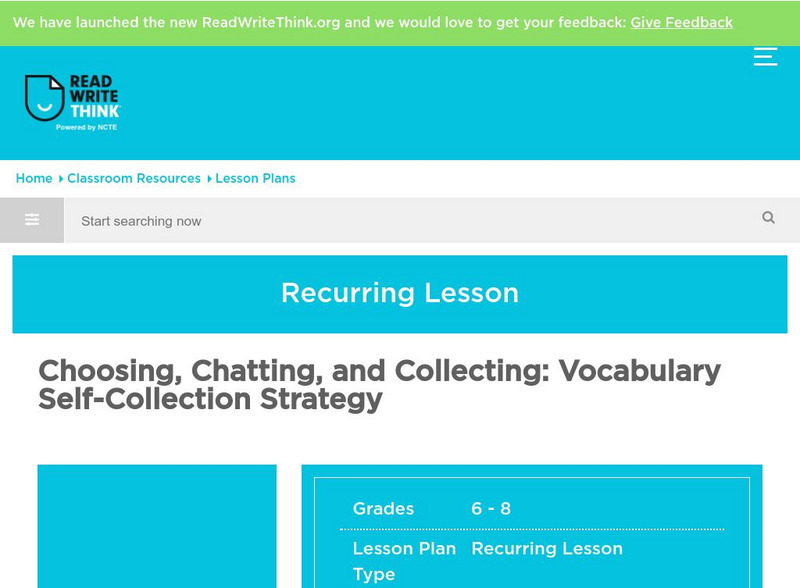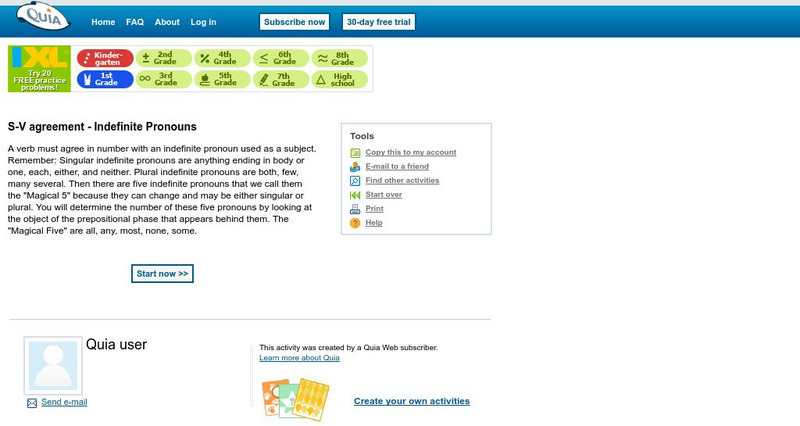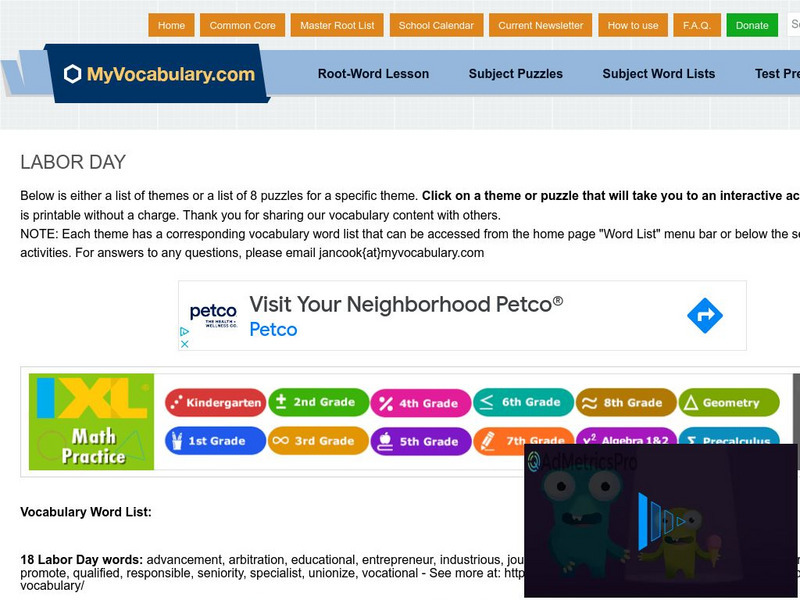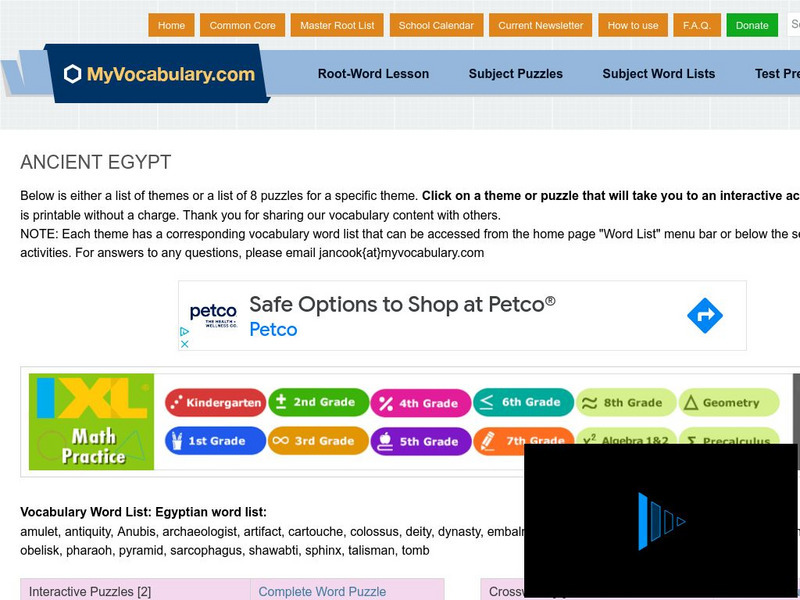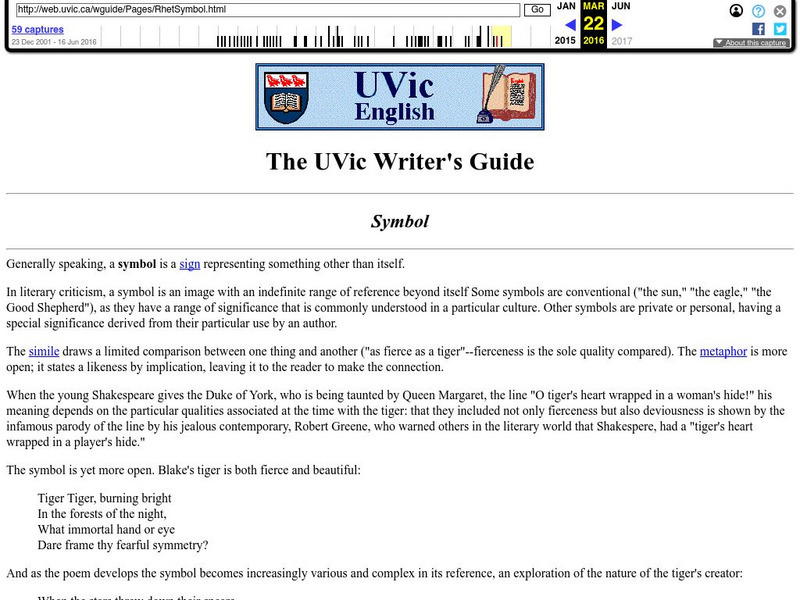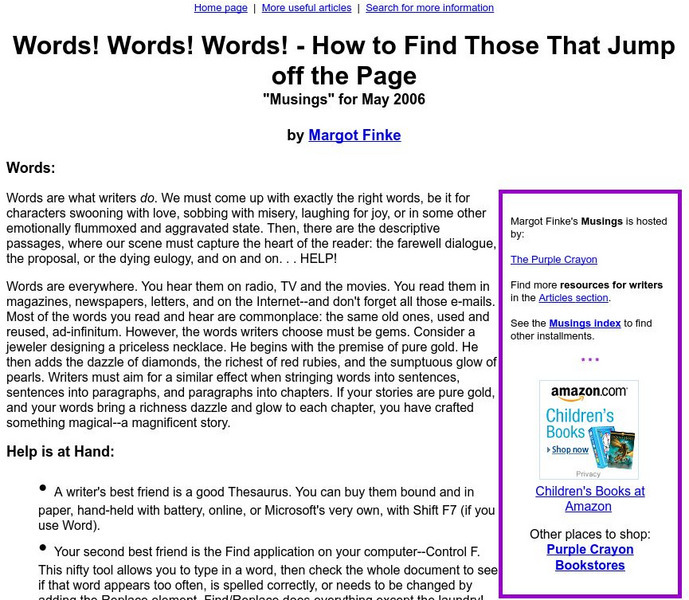Curated OER
Mc Graw Hill: Part 1 Reading: Literature: Understand Literary Allusions
Understanding literary allusions can help in your understanding of readings. Learn about literary allusions on this site.
Curated OER
Mc Graw Hill: Analyze Language Choices
Learn about figurative language and how to determine the figurative, denotative, and connotative meanings of words.
InterLink Language Centers
Interlink Language Centers: Reading Exercises Science
An interactive exercise for students to use while developing an understanding of how to read scientific informational texts. The text is presented one paragraph at a time and difficult vocabulary words are defined as footnotes. Then...
Other
Spelling police.com: Allegory
Informational site that provides the definition for and examples of allegory.
Other
Spelling police.com: Literary Devices
A simple list of literary terms. Click on each for a definition and examples.
Other
Write Design Online: Glossary of Terms
This is a comprehensive glossary of terms pertaining to literature, writing, art, graphic design, and technology.
Emory University
Emory University Writing Center: Ambiguity
Site defines the term ambiguity. Offers explanations of different types of ambiguity, quotes and examples.
University of Toronto (Canada)
University of Toronto: Representative Poetry Online
A glossary of literary terms, primarily dealing with poetry, with definitions.
Alabama Learning Exchange
Alex: Grammar and Literature Through Digital Storytelling
In this instructional activity students create digital stories in cooperative groups using multimedia tools to demonstrate comprehension of the elements of grammar, literature, and technology introduced in the instructional activity....
ReadWriteThink
Read Write Think: Using Word Webs to Teach Synonyms for Commonly Used Words
Contains plans for seven lessons that teach students to use more expressive synonyms in their written and oral language. In addition to objectives and standards, this instructional plan contains printable resources for the lessons as...
ReadWriteThink
Read Write Think: Vocabulary Self Collection Strategy
Contains plans for two lessons that ask students to compose their own vocabulary lists by selecting words that are unfamiliar to them. In addition to objectives and standards, this instructional plan contains links to sites used in the...
Quia
Quia: Action Verbs
This 26 question quiz has students choose the term that best matches the definition. Java is required.
University of Victoria (Canada)
The U Vic Writer's Guide: Literary & Rhetorical Terms
A comprehensive list of literary terms from the University of Victoria that will give students definitions and examples of how they are used. Terms are sorted by category. L.11-12.4d Verify meaning
Quia
Quia: S v Agreement: Indefinite Pronouns
Given the term definition, students are to select the matching literary term in this 40 question quiz that covers 40 literary terms. Java is required.
Vocabulary University
My vocabulary.com: List of Themes for Social Studies & History
This is a list of interactive vocabulary activities for social studies and history.
Vocabulary University
My vocabulary.com: Labor Day
This is a collection of puzzles and activities using a bank of 18 words on the theme of Labor Day. It also provides a Vocabulary Word List for Vocational and Technical Education (362).
Vocabulary University
My vocabulary.com: Ancient Egypt
This page includes a lesson plan, a variety of vocabulary puzzles and activities, and an extensive vocabulary list of words pertaining to Ancient Egypt.
Cengage Learning
Gale: Free Resources: Glossary of Literary Terms
An extensive a-to-z glossary of literary terms from major educational publisher Gale.
University of Victoria (Canada)
The U Vic Writer's Guide: Literary Term: Ambiguity
This site from The UVic Writer's Guide provides an excellent description of the term ambiguity. Site offers links to other literary terms and their meanings.
University of Victoria (Canada)
The U Vic Writer's Guide: Figures of Thought: Symbol
Learn about symbolism in literature and view examples of this literary technique.
Other
Concepts and Practices for Writing Courses: Interpreting Literature
This tutorial surveys the way readers should interpret literature or text in symbols, syntax, meaning, and the like. The article features a Literary Toolkit for Analyzing Literature.
McGraw Hill
Mc Graw Hill: Informational Text: Determine Meaning of Words and Phrases
Read about six different ways to determine the meaning of unknown words and phrases, and follow the links to get more information on each way. Includes practice worksheets. CCSS.ELA-Literacy.CCRA.R.4
Harold D. Underdown
How to Find Words That Jump Off the Page
An excellent resource for a writer struggling to come up with the exact words for which they are looking. Includes very helpful advice and information. Aimed at writers of children's literature, but can also apply to other genres.
AdLit
Ad lit.org: Teaching Word Meanings as Concepts
The most effective vocabulary instruction teaches word meanings as concepts; it connects the words being taught with their context and with the students' prior knowledge. Six techniques have proven especially effective: Concept...


